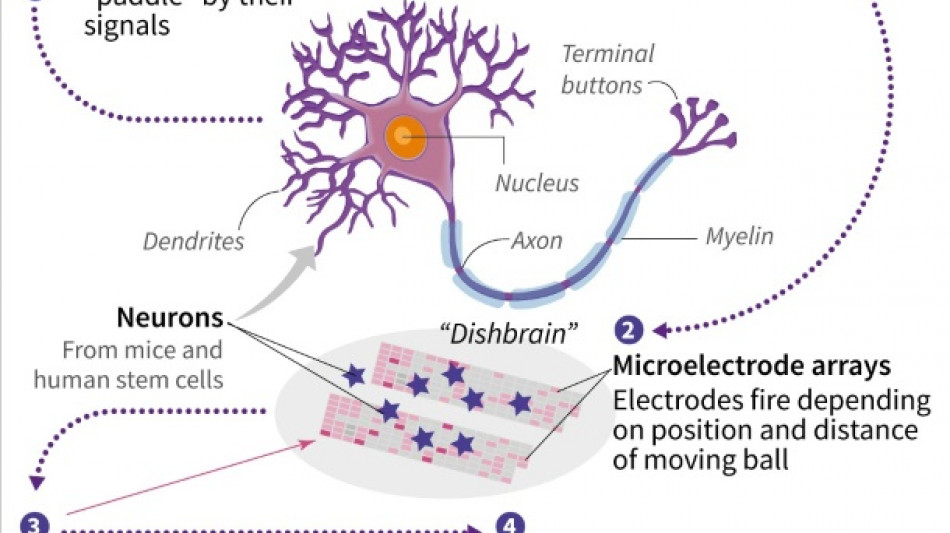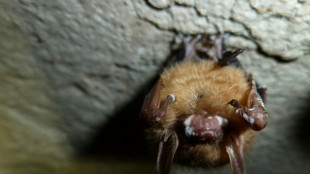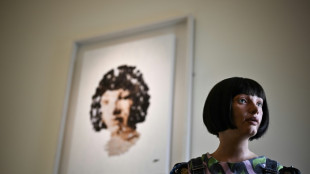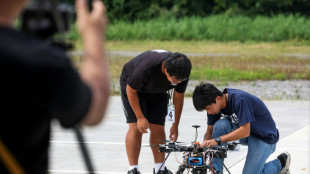
-
 EU vows 'unwavering' support for Ukraine after Trump win
EU vows 'unwavering' support for Ukraine after Trump win
-
Argentina put Italy to the sword

-
 Man City beaten again at Brighton to open door to Liverpool
Man City beaten again at Brighton to open door to Liverpool
-
Guardiola suffers four successive defeats for first time as Brighton rock Man City

-
 Gauff fights back to beat Zheng for WTA Finals title
Gauff fights back to beat Zheng for WTA Finals title
-
Musiala sends Bayern ahead as rivals stumble

-
 Bangladesh outspin Afghanistan to level ODI series
Bangladesh outspin Afghanistan to level ODI series
-
Monaco claim comeback win to retake second spot in Ligue 1

-
 'Way too far': Amsterdam in shock after 'frightening' violence
'Way too far': Amsterdam in shock after 'frightening' violence
-
Bonzi fells Norrie in Metz for first ATP title

-
 Biden, Trump to meet at White House ahead of historic return
Biden, Trump to meet at White House ahead of historic return
-
Jorgensen the hero as Australia edge England in Twickenham thriller

-
 Vinicius treble as Real Madrid crush Osasuna, Villarreal rise
Vinicius treble as Real Madrid crush Osasuna, Villarreal rise
-
A 'jungle': Rome's teeming jail lays bare Italy's prison ills

-
 Asalanka knock seals four-wicket Sri Lanka win over New Zealand
Asalanka knock seals four-wicket Sri Lanka win over New Zealand
-
Australia beat England 42-37 in Twickenham thriller

-
 Wolves end wait for Premier League win, Man City aim to snap losing streak
Wolves end wait for Premier League win, Man City aim to snap losing streak
-
Gaza mediator Qatar bows out, source says, in sign of impasse

-
 Musiala stars as Bayern go six clear, Dortmund lose again
Musiala stars as Bayern go six clear, Dortmund lose again
-
'Racing career: completed it!' announces cycling great Cavendish

-
 Waring holds one-shot Abu Dhabi lead as McIlroy struggles
Waring holds one-shot Abu Dhabi lead as McIlroy struggles
-
Vinicius treble helps Real Madrid crush Osasuna

-
 Iran urges Trump to change 'maximum pressure' policy
Iran urges Trump to change 'maximum pressure' policy
-
Goal-shy Lecce fire coach Gotti

-
 Comeback king 'Cav' set a benchmark doing the thing he loved
Comeback king 'Cav' set a benchmark doing the thing he loved
-
UK's Queen Camilla to miss events as Kate returns to public life

-
 Cycling great Cavendish announces retirement
Cycling great Cavendish announces retirement
-
Rome's Trevi Fountain unveils tourist catwalk during cleaning

-
 Defence puts a smile on All Blacks faces ahead of French Test
Defence puts a smile on All Blacks faces ahead of French Test
-
Kagiyama wins NHK Trophy despite early slip

-
 Afghan women not barred from speaking to each other: morality ministry
Afghan women not barred from speaking to each other: morality ministry
-
China's Xi hails 'new chapter' in relations with Indonesia

-
 Injured Darry out of All Blacks tour with Cane in doubt
Injured Darry out of All Blacks tour with Cane in doubt
-
Pakistani separatists kill 26 in railway station blast

-
 China's Xi meets Indonesian president in Beijing
China's Xi meets Indonesian president in Beijing
-
Key nominees for the 2025 Grammy Awards

-
 Top art collector displays rare treasures in Madrid
Top art collector displays rare treasures in Madrid
-
Pakistani separatists kill 25 in railway station blast

-
 South Sudan floods affect 1.4 million, displace 379,000: UN
South Sudan floods affect 1.4 million, displace 379,000: UN
-
Japan's Sasaki set to follow Ohtani with move to MLB

-
 Konstas hits unbeaten 73 in audition to open for Australia
Konstas hits unbeaten 73 in audition to open for Australia
-
Pakistani separatists kill 22 in railway station blast

-
 No culprit found five years on from Notre Dame fire
No culprit found five years on from Notre Dame fire
-
Reeking mud sparks health fears in Spain flood epicentre

-
 Bogusz goal edges LAFC past Whitecaps in MLS playoffs
Bogusz goal edges LAFC past Whitecaps in MLS playoffs
-
N. Korea jams GPS signals, affecting ships, aircraft in South

-
 Indonesia volcano catapults vast ash tower into sky
Indonesia volcano catapults vast ash tower into sky
-
Cavs ride huge first half to crushing win over Warriors

-
 Over 130 homes lost in California wildfire as winds drop
Over 130 homes lost in California wildfire as winds drop
-
New tools give researchers hope for fungus-ravaged US bats


Brain cells in dish learn to play video game
Neuroscientists have shown that lab-grown brain cells can learn to play the classic video game Pong, and could be capable of "intelligent and sentient behavior."
Brett Kagan, who led a study published in the journal Neuron Wednesday, told AFP his findings open the door to a new type of research into biological information processors, complementing normal digital computers.
"What machines can't do is learn things very quickly -- if you need a machine learning algorithm to learn something, it requires thousands of data samples," he explained.
"But if you ask a human, or train a dog, a dog can learn a trick in two or three tries."
Kagan, chief scientific officer at Melbourne-based Cortical Labs, set out to answer whether there is a way to harness the inherent intelligence of neurons.
Kagan and colleagues took mice cells from embryonic brains, and derived human neurons from adult stem cells.
They then grew them on top of microelectrode arrays that could read their activity and stimulate them. The experiments involved a cluster of around 800,000 neurons, roughly the size of a bumblebee brain.
In the game, a signal was sent from the left or right of the array to indicate where the ball was located, and "DishBrain," as the researchers called it, fired back signals to move the paddle, in a simplified, opponent-free version of Pong.
- 'Sentient, but not conscious' -
One of the major hurdles was figuring out how to "teach" the neurons.
In the past, it has been proposed to give them a shot of the "feel good" hormone dopamine to reward a correct action -- but that was difficult to achieve in a time-sensitive way.
Instead, the team relied on a theory called the "free energy principle" that was coined by the paper's senior author Karl Friston, which says cells are hardwired to minimize unpredictability in their environments.
When the neurons succeeded in making the paddle hit the ball, they received "predictable" electrical signals. But when they missed, they were sent randomized, or "unpredictable" signals.
"The only thing that the neurons could do is actually get better at trying to hit the ball to keep their world controllable and predictable," said Kagan.
DishBrain's performance isn't up to AI (artificial intelligence) or human standards, but "the fact we see any significant learning is really just evidence of how robust neurons are at processing information and adapting to their environment," he added.
The team believes DishBrain is sentient -- which they defined as being able to sense and respond to sensory information in a dynamic way -- but drew the line at calling it "conscious," which implies awareness of being.
DishBrain also tried out another task -- the dinosaur game that appears in Google Chrome when no internet connection is found -- and the preliminary results were encouraging, said Kagan.
For their next steps, the team plans to test how DishBrain's intelligence is affected by medicines and alcohol -- though Kagan himself is most excited by the future possibilities of biological computers based on this discovery.
"We compare it to the first transistor," he said, the building block of modern electronics invented in 1947, which eventually led to today's powerful digital computers.
"This is robustly conducted, interesting neuroscience," said Tara Spires-Jones of the Centre for Discovery Brain Science at the University of Edinburgh, who was not involved in the study.
"Don't worry, while these dishes of neurons can change their responses based on stimulation, they are not SciFi style intelligence in a dish, these are simple (albeit interesting and scientifically important) circuit responses."
Y.Nakamura--AMWN



